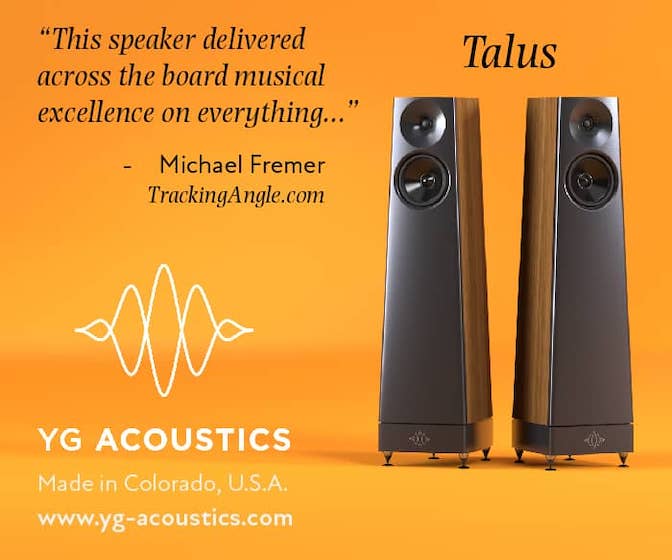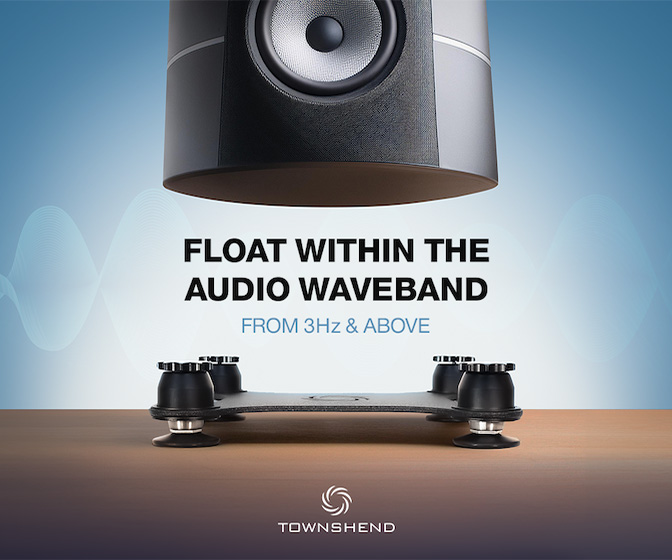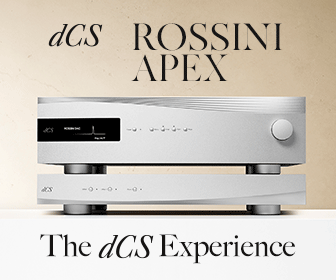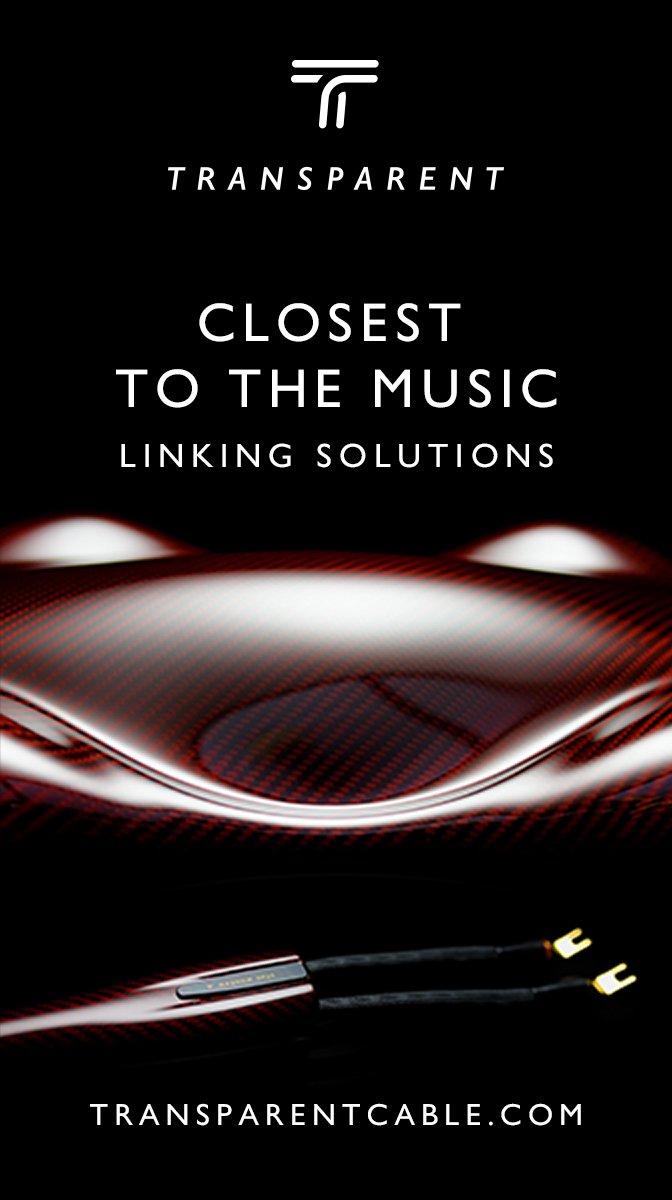Deutsche Grammophon announces Four New Titles in its Original Source Vinyl Series, plus a Major Bruckner Vinyl Release
Classic Recordings from Karl Bohm, Claudio Abbado, Rafael Kubelik, Daniel Barenboim and Carlo Maria Giulini receive Deluxe Audiophile Vinyl Releases
Deutsche Grammophon's extraordinary Original Source Series of AAA deluxe vinyl reissues continues apace with another four releases just announced for May. Joining them is the announcement of a newly remixed and remastered for vinyl set of three seminal Bruckner recordings by the great Italian maestro Carlo Maria Giulini, to be released in June. Although these Giulini classics are digital recordings, no doubt Rainer Maillard and Sidney C. Meyer at Emil Berliner Studios will have worked their customary magic to improve what were already very decent sonics for digital of this period.
Bruckner is also featured on one of the new OSS releases: Bruckner’s 4th Symphony, conducted early in his conducting career by Daniel Barenboim with the Chicago Symphony Orchestra. So why don’t we start there….
It's Here - The Bruckner Bicentenary - and, Like his Symphonies, It's Going to be Massive!
 Anton Bruckner
Anton Bruckner
It’s the Year of the Big B: Anton Bruckner, celebrating the 200th anniversary of his birth in Ansfelden, Austria, near Linz. Bruckner, a devout Catholic, expressed his faith in huge symphonies which seemed to embrace the entirety of existence. No kidding. They are musical epics, calling upon large orchestral forces along the lines of Mahler (though no choirs) and, as with Mahler, in recent years recordings of these works have proliferated. Two composers who were barely known some 50 years ago are now amongst the most reliable best-sellers in the classical market.
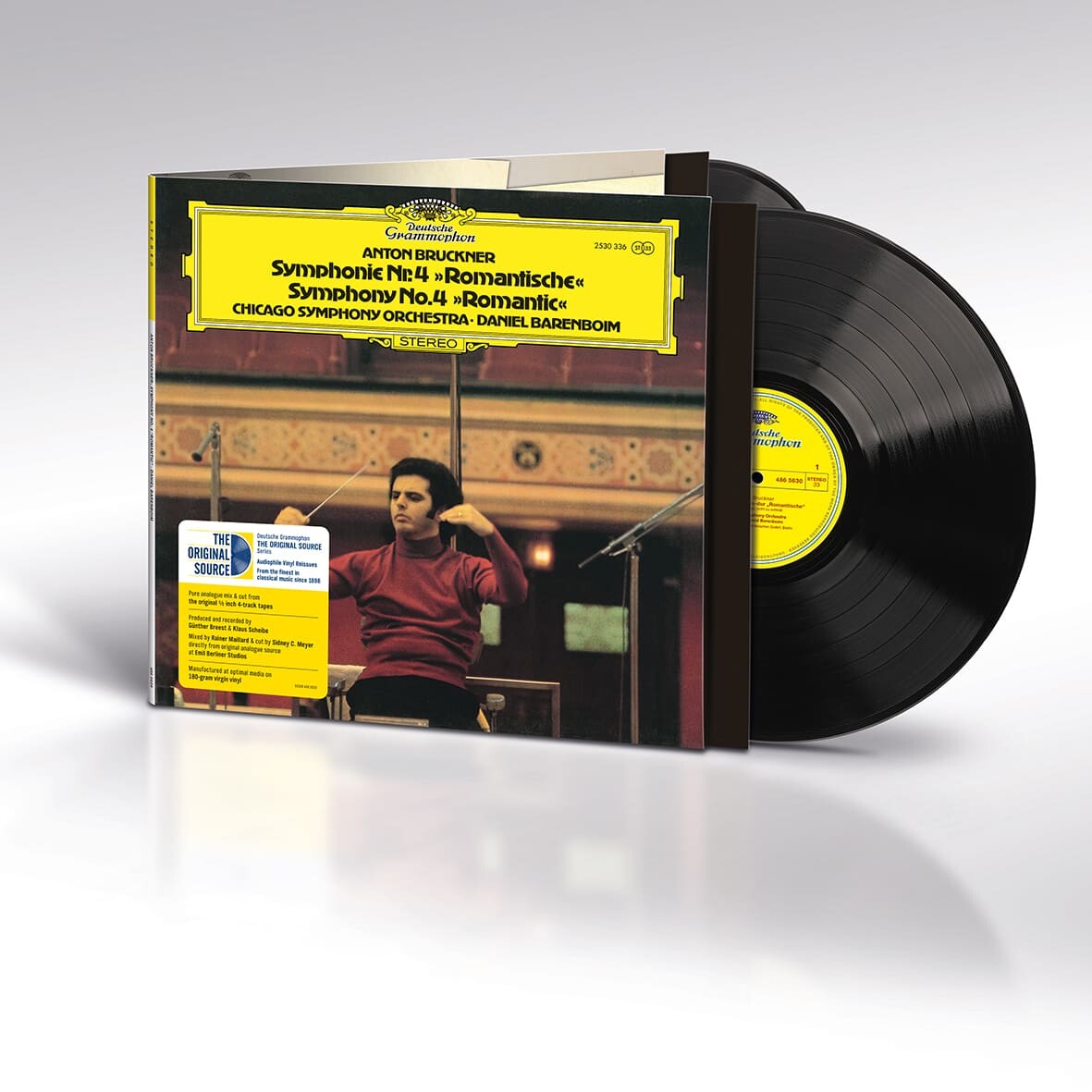 Barenboim has to-date recorded, I believe, three cycles of the complete symphonies. The recording featured here dates from 1974, and became part of his first cycle with the Chicago Symphony, an orchestra with which the conductor has enjoyed a close association over many decades.
Barenboim has to-date recorded, I believe, three cycles of the complete symphonies. The recording featured here dates from 1974, and became part of his first cycle with the Chicago Symphony, an orchestra with which the conductor has enjoyed a close association over many decades.
In 1974 the only two mainstream complete cycles available on record - to my knowledge - were by Eugen Jochum for DG (with the Berlin Philharmonic and Bavarian State Radio orchestras), and by Bernard Haitink with the Concertgebouw, Amsterdam for Philips.
The 4th Symphony at that time was considered one of the more approachable of the cycle, and was probably the most recorded, along with the 9th. In the same year as this Barenboim version was recorded, the great Austrian conductor Karl Böhm set down his benchmark version with the Vienna Philharmonic for Decca, long considered an audiophile classic. It will be very interesting to see how the Barenboim version with updated OSS sonics compares to the Böhm.
I am not overly familiar with Barenboim’s Bruckner, though it is generally well regarded. This earliest of his three cycles has, over the years, seen a steady rise in its critical approval. I am very excited to hear this.
Staying with Bruckner, a sidestep to the Giulini box of what are considered the composer’s greatest symphonies: Nos. 7, 8 and 9.
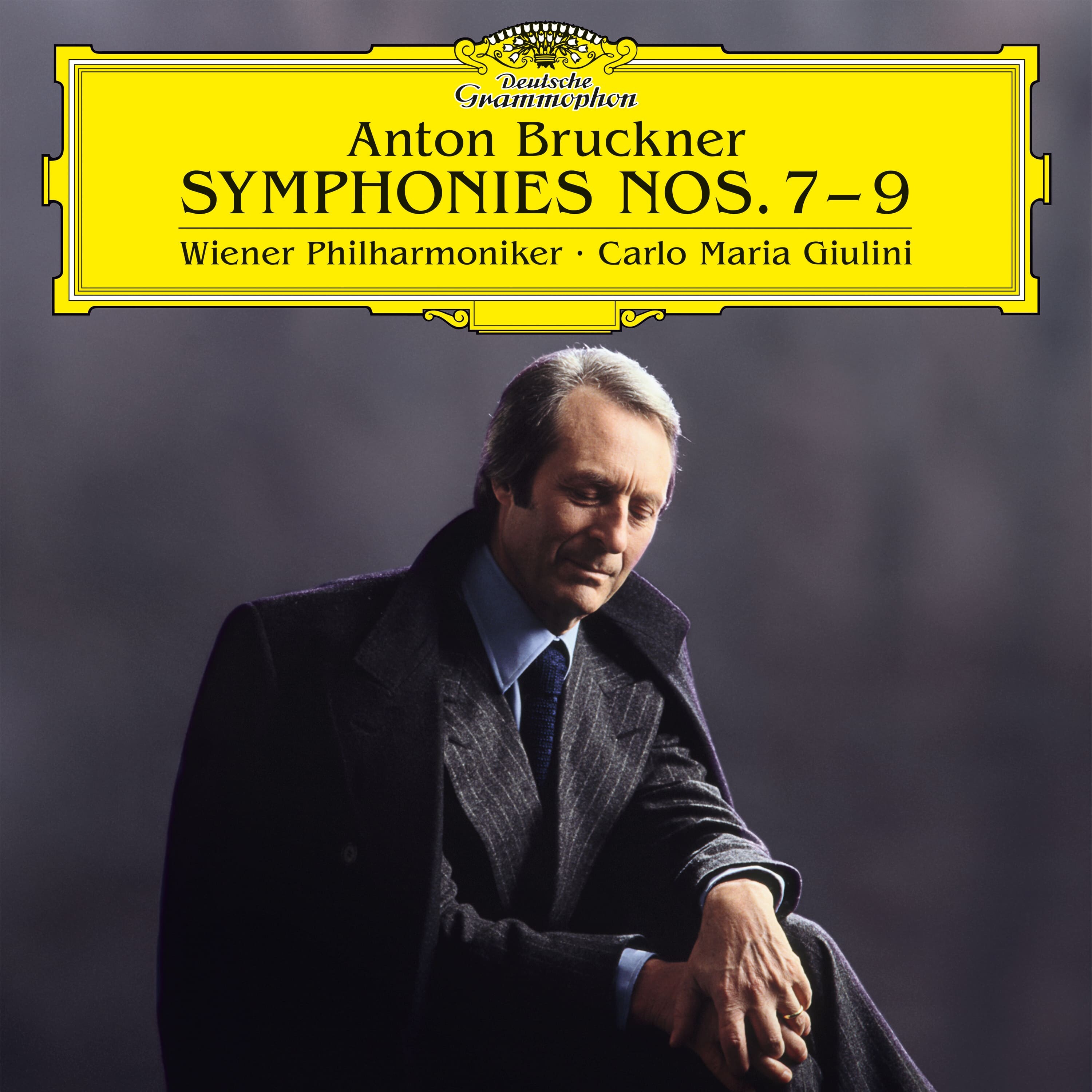 My own introduction to these works as a teenager was via the celebrated Karajan analogue DG versions of the 1960s (Symphony No. 9) and mid-1970s (Symphonies Nos. 7 and 8). (Karajan re-recorded the 9th for DG in 1976, and that is the version that has been included in the various subsequent DG box sets of the complete Bruckner symphonies, although I prefer his earlier 9th - recorded in the Jesus-Christus-Kirche - both interpretatively and sonically to the later version recorded in the Berlin Philharmonie). So the Karajan recordings retain a very special place in my affections.
My own introduction to these works as a teenager was via the celebrated Karajan analogue DG versions of the 1960s (Symphony No. 9) and mid-1970s (Symphonies Nos. 7 and 8). (Karajan re-recorded the 9th for DG in 1976, and that is the version that has been included in the various subsequent DG box sets of the complete Bruckner symphonies, although I prefer his earlier 9th - recorded in the Jesus-Christus-Kirche - both interpretatively and sonically to the later version recorded in the Berlin Philharmonie). So the Karajan recordings retain a very special place in my affections.
However, the Giulini renderings, set down in Vienna between 1985 and 1989, are essential for anyone who loves this music. Yes, they are digitally recorded, but that has never gotten in the way of many holding these versions in high regard, myself included.
Giulini at the time was entering what became a glorious Indian summer in his career. Always noted for his patrician elegance both in his podium manner and in his interpretations, he parted ways with his long-time record company, EMI, in the mid-1970s to sign with DG. The first fruits of the relationship were two instant benchmark recordings with the Chicago Symphony: of Mussorgsky’s orchestral showstopper Pictures at an Exhibition, coupled with an electric “Classical” Symphony by Prokofiev; plus a version of Mahler’s 9th Symphony which for me is still unparalleled for its emotional depth and glorious playing. (Both sets are well worth seeking out, boasting better-than-usual sonics for DG in this period; for the Mahler, try and track down the superior Speaker’s Corner reissue).
DG also travelled to Los Angeles with Giulini when the legendary impresario Ernest Fleischmann achieved quite the coup by signing him in the late 1970s to the LA Philharmonic as Music Director. No one saw that coming: persuading one of the doyen of European maestros to up stakes for La-La Land. Their first release together was a still-controversial Beethoven Eroica, whose slow tempo in the opening movement sharply divided critics and listeners. (It may not be the Eroica you thought you knew, but it is well worth listening to, and a fascinating counterpoint to the ever-increasing speeds of the various period instrument performances that were to detonate on the market in the years ahead). Other recordings from the partnership were less controversial, and thoroughly engaging, marred only by the often glassy digital sonics of DG during this period. Some years ago I got to know one of the long-time violinists in the LA Phil, and he always enthused mightily about the experience of playing under Giulini’s baton.
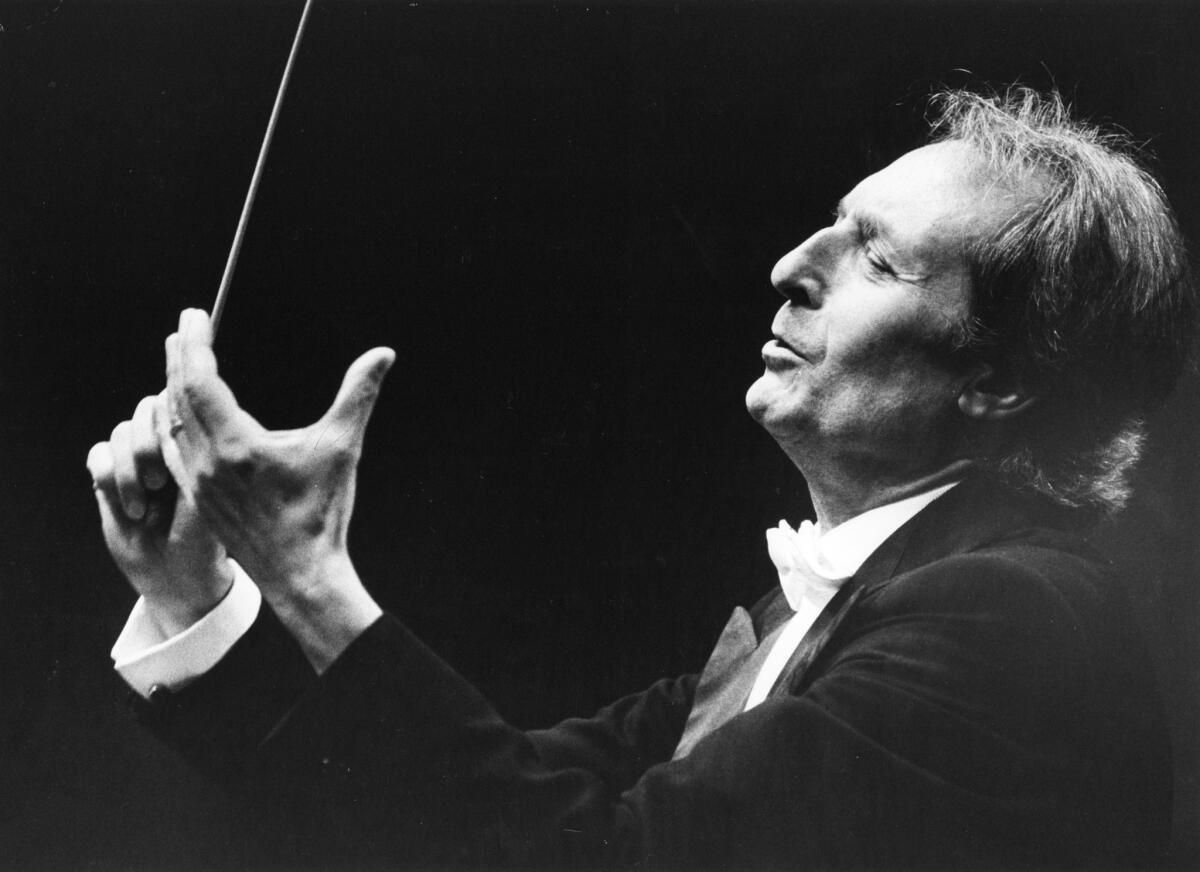 Around this time (the early 1980s) I got to hear Giulini conduct Verdi’s final masterpiece Falstaff at Covent Garden, and it was quite unlike anything I have heard in the opera house before or since. There was just a sense of the music being illuminated from within, with textures and musical lines emerging with an extraordinary clarity and sense of purpose. You felt like Verdi himself would have loved it.
Around this time (the early 1980s) I got to hear Giulini conduct Verdi’s final masterpiece Falstaff at Covent Garden, and it was quite unlike anything I have heard in the opera house before or since. There was just a sense of the music being illuminated from within, with textures and musical lines emerging with an extraordinary clarity and sense of purpose. You felt like Verdi himself would have loved it.
These same qualities inform Giulini’s Bruckner with the Vienna Philharmonic. There is just a sense of rightness to the performances, with him allowing the long musical strands to emerge effortlessly. The 9th in particular is a recording I listen to often, with a sprightly, perfectly paced Scherzo which gets me out of my seat and air-conducting every time! This 9th was never issued on LP at the time; there is a superb Esoteric CD/SACD which will be hard to beat.
But my money is on Emil Berliner Studios coming up with that certain je ne sais quoi to enhance these classic Bruckner recordings for this new vinyl box set. Can’t wait!
The Original Source Series Strikes Again!
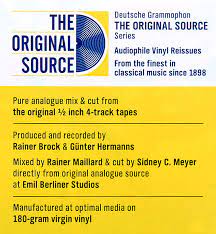
As if that wasn’t all exciting enough, the remaining three OSS releases (after Barenboim's Bruckner 4 mentioned earlier) are all special. But the Beethoven Pastoral Symphony is very special indeed.
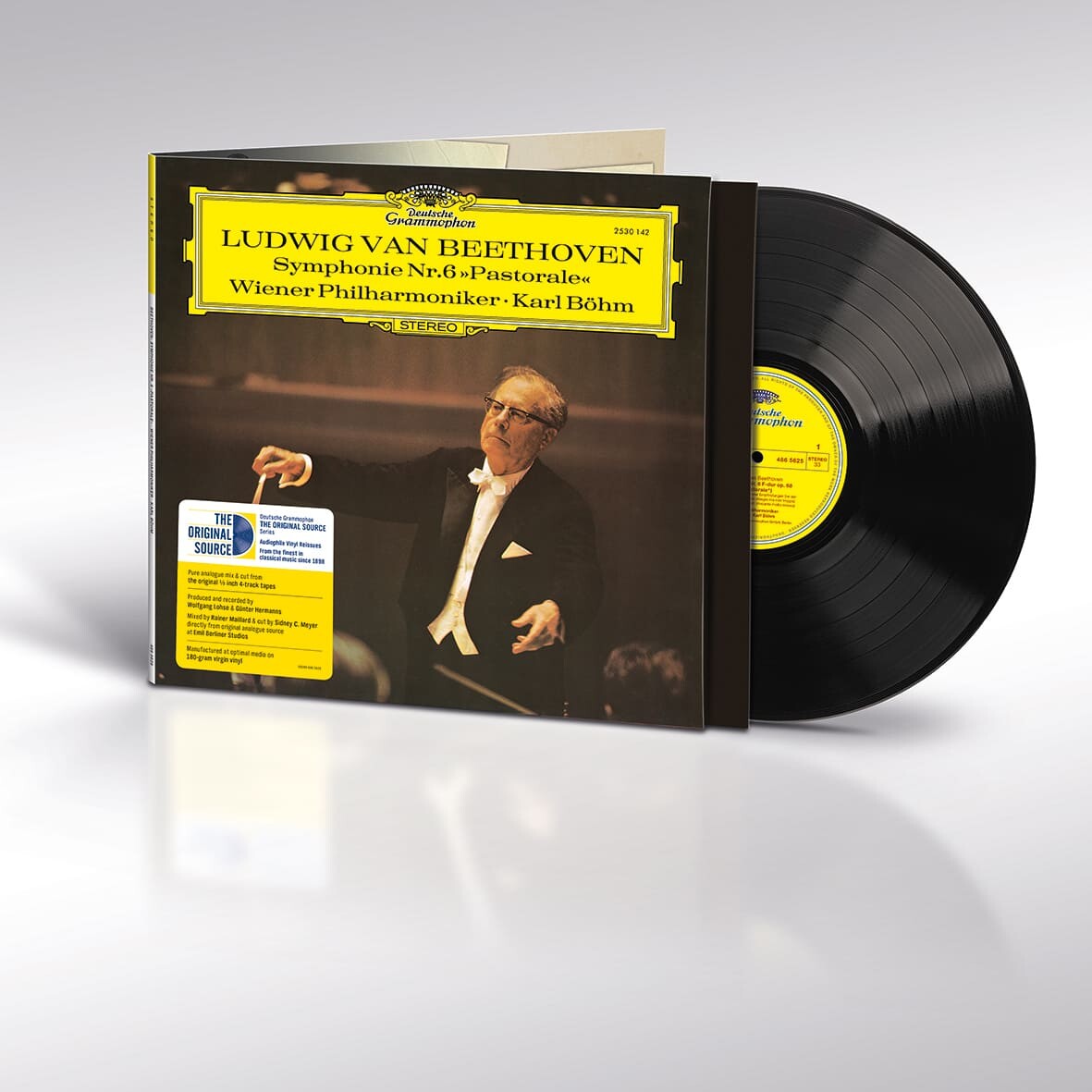 Karl Böhm’s recording, again with the Vienna Philharmonic, captured in their own Musikverein concert hall, has long been acknowledged as a benchmark version for its perfect pacing and glowing orchestral playing. This is music tailor-made for the distinctive sonorities of these Viennese musicians. But in terms of audiophile sonics it always had to give way to Bruno Walter’s equally resplendent version for CBS/Sony (currently available in a glorious AAA reissue by Analogue Productions).
Karl Böhm’s recording, again with the Vienna Philharmonic, captured in their own Musikverein concert hall, has long been acknowledged as a benchmark version for its perfect pacing and glowing orchestral playing. This is music tailor-made for the distinctive sonorities of these Viennese musicians. But in terms of audiophile sonics it always had to give way to Bruno Walter’s equally resplendent version for CBS/Sony (currently available in a glorious AAA reissue by Analogue Productions).
Well, that may change with this OSS makeover. This recording was part of a complete cycle of all the Beethoven symphonies by Böhm and the VPO that was released a decade after Karajan’s justly celebrated 1963 cycle with the BPO. Böhm’s cycle - slightly more reserved than Karajan, but maybe more echt Viennese - has somewhat languished in the long shadow cast by the Big K. Well, a few years ago, Emil Berliner Studios remixed and remastered the Böhm cycle on single-layer SACD, and it sounded incredible. Especially that Pastoral. With ravishing sound, perfect pacing, the warm instrumental timbres of the VPO transport you into an almost prelapsarian garden of delights.
So, yes, I am really looking forward to taking this one for a spin!
 And that’s not all. Amongst the remaining OSS releases we have another example of early Claudio Abbado conducting the VPO in one of the great warhorses of the classical repertoire, and imbibing it with the customary freshness typical of many of his records from this stage in his career. Abbado’s later full digital cycle of the Brahms symphonies with the BPO is justly celebrated, but as anyone who bought the recent Abbado/VPO Tchaikovsky 4th in the last batch of OSS releases will know, there’s just something about these earlier Abbado recordings that commands attention.
And that’s not all. Amongst the remaining OSS releases we have another example of early Claudio Abbado conducting the VPO in one of the great warhorses of the classical repertoire, and imbibing it with the customary freshness typical of many of his records from this stage in his career. Abbado’s later full digital cycle of the Brahms symphonies with the BPO is justly celebrated, but as anyone who bought the recent Abbado/VPO Tchaikovsky 4th in the last batch of OSS releases will know, there’s just something about these earlier Abbado recordings that commands attention.
And last, but far from least, we have one of the absolute masterpieces of the 20th century: Bartok’s Concerto for Orchestra. Can we expect another sonic marvel from the Boston Symphony Orchestra recorded in Boston Symphony Hall, this time performing a work the orchestra itself gave the first performance of, conducted by one of the acknowledged Bartok experts, Rafael Kubelik?
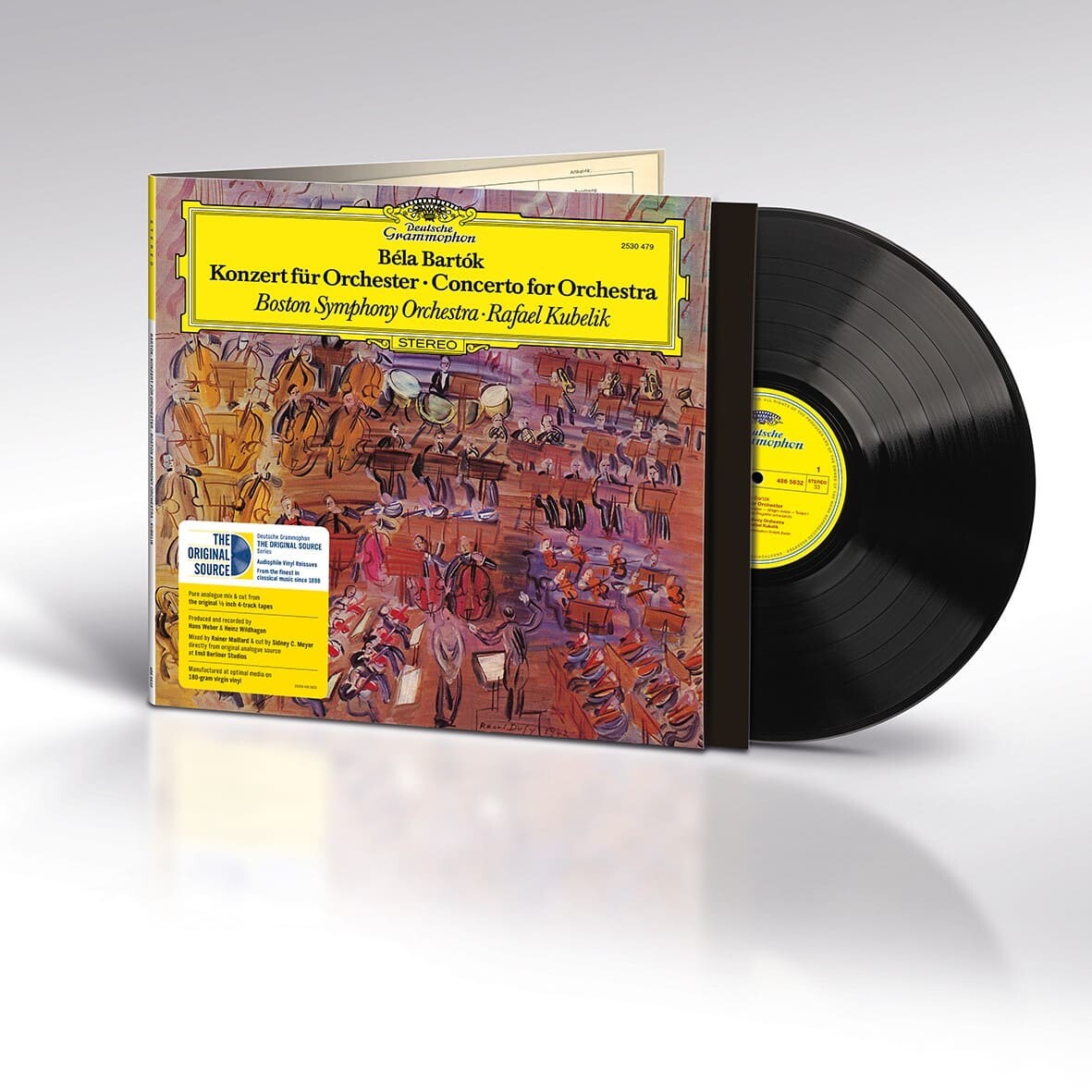 I have made no secret of my opinion that the very best of the OSS reissues, sonically, have been those recorded under the watchful eye (and ears) of Thomas Mowrey in Boston. I think Mowrey’s belief and commitment to the surround sound process, at a time when many thought it was more of a gimmick that anything else, shines through in how these records have come up shining like the brightest pennies in Rainer Maillard and Sidney C. Meyer’s restorations. I am guessing this has something to do not only with the acknowledged excellence of the Hall’s acoustics, but also the engineering team’s thoughtful placement of their microphones. Whatever it is, if pressed, I would have to place Ozawa’s Symphonie Fantastique, and Steinberg’s Hindemith record - both done with the BSO - at the very top of the list for sonic excellence in the OSS series so far - and the competition is not inconsiderable.
I have made no secret of my opinion that the very best of the OSS reissues, sonically, have been those recorded under the watchful eye (and ears) of Thomas Mowrey in Boston. I think Mowrey’s belief and commitment to the surround sound process, at a time when many thought it was more of a gimmick that anything else, shines through in how these records have come up shining like the brightest pennies in Rainer Maillard and Sidney C. Meyer’s restorations. I am guessing this has something to do not only with the acknowledged excellence of the Hall’s acoustics, but also the engineering team’s thoughtful placement of their microphones. Whatever it is, if pressed, I would have to place Ozawa’s Symphonie Fantastique, and Steinberg’s Hindemith record - both done with the BSO - at the very top of the list for sonic excellence in the OSS series so far - and the competition is not inconsiderable.
Kubelik’s Concerto for Orchestra was always one of my better-sounding DG LPs of the period, and I am very keen to hear what sonic improvements the EBS team have wrought with this record. The performance is excellent. Naturally, audiophiles the world over will be waiting with tonearms at the ready, ready to drop, to hear whether Kubelik and the BSO are a match for Reiner and the Chicago Symphony Orchestra on one of the greatest-sounding RCA Living Stereos ever made, and therefore one of the greatest classical records ever made, period. (It’s currently available in another superb Analogue Productions AAA reissue - if you don’t have this already, you need to buy it now).
So there you have it. A feast of fine classical music headed your way in just a few months. Yes, I know the steady increases in price remain questionable (Tone Poets - the model for this series - don’t keep on going up), and supply-chain problems have gone from frustrating to exasperating, but in the end you know these are going to be must-have records for lovers of classical music.
A hell of a way to kick off the year for record lovers everywhere!
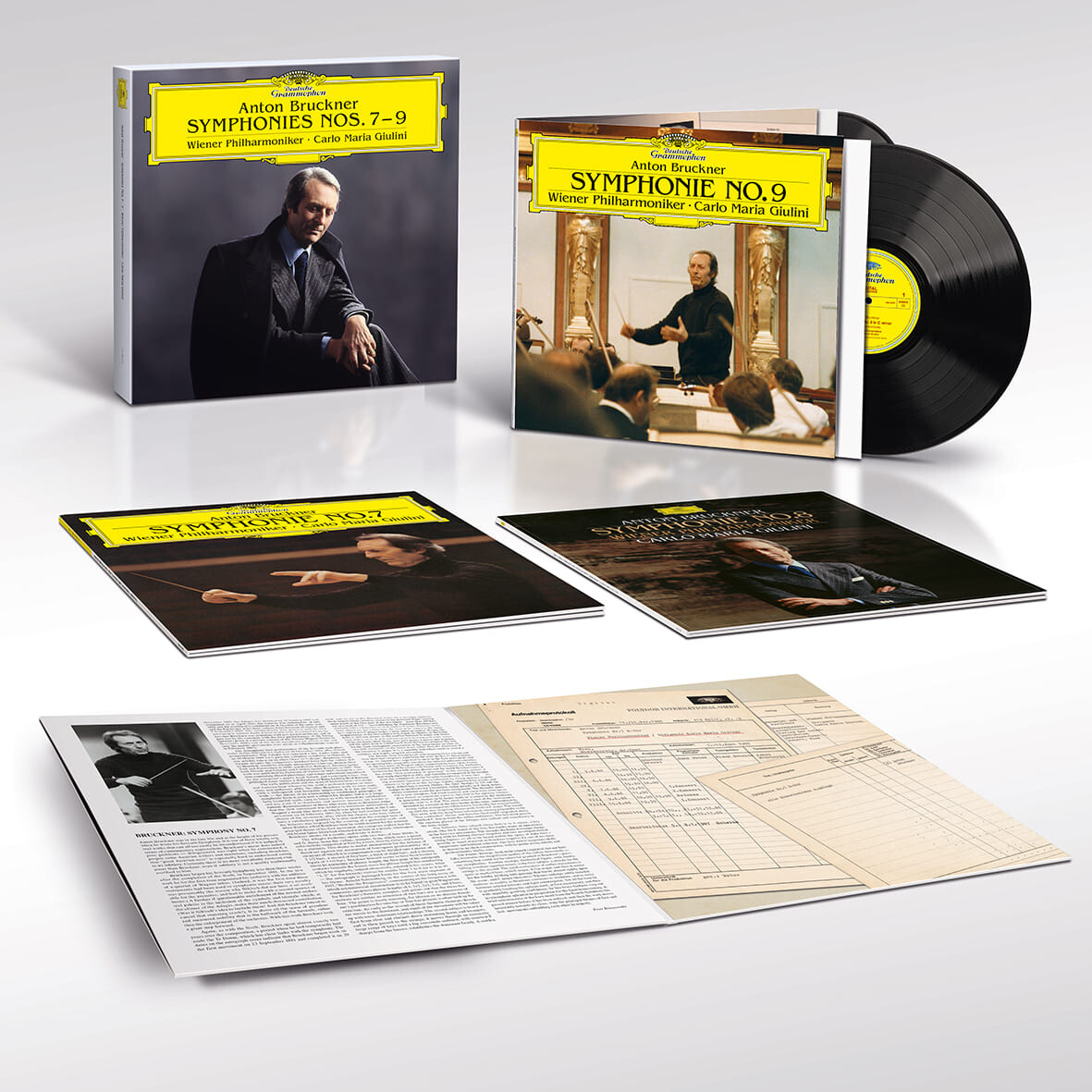 You can pre-order the 4th Batch of Original Source Reissues from the DG Shop here, and the Giulini Bruckner Box Set here. As before, all these releases will be numbered, limited editions pressed at Optimal.
You can pre-order the 4th Batch of Original Source Reissues from the DG Shop here, and the Giulini Bruckner Box Set here. As before, all these releases will be numbered, limited editions pressed at Optimal.
Release dates in the US are typically a few weeks later than in Europe; pre-orders will be available at Acoustic Sounds and Elusive Disc. However I do not see them listed yet.
Unnumbered re-presses of the first four Original Source Series releases are currently available at the DG shop in Europe, DG’s American store - Center Stage - and Acoustic Sounds and Elusive Disc.








